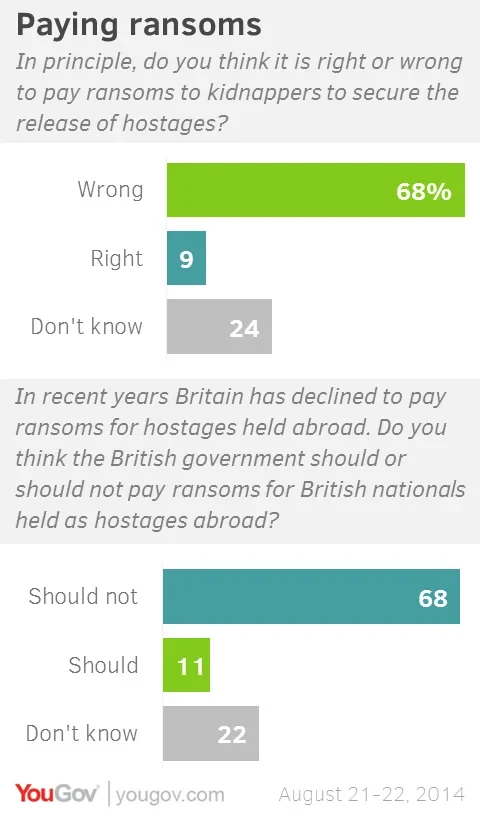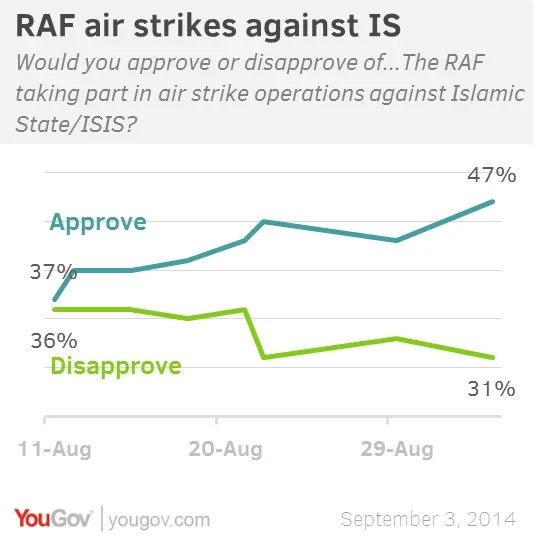While most people admit they would personally pay a ransom to liberate a family member, most also believe it’s the wrong thing to do
David Cameron has insisted Britain will continue its longstanding policy of never paying ransoms – even as many other European governments do. Threats by the jihadis of Islamic State to kill a British aid worker, following the murder of a second U.S. journalist, have drawn attention to the debate over the payment of hostages. The United States, like the UK, refuses to pay ransom to hostages and has pressed other G8 countries to do the same.

A new YouGov poll finds wide backing for the policy amongst British people, both in principle and in practice.
By 68% to 9% people say it is wrong to pay ransoms to kidnappers to secure the release of hostages, and by an equally decisive margin (68%-11%) want Britain to continue its policy of refusing to do so. Even so, most people (55%) say they would personally pay a ransom to liberate a family member.
A parallel poll conducted in the United States found that the majority of Americans also think the US government should decline to pay ransoms for US nationals held abroad.
Support for air strikes
The ransom payment poll was conducted from 21-22 August, following the murder of the first U.S. journalists, James Foley, but before the murder of the second and before IS made clear it planned on killing British aid worker David Haines if US air strikes against the militants in Iraq continued. The US has made no indication of relenting. In fact, recent comments by the prime minister have left open the possibility of the UK joining the US in military action against IS.
YouGov’s latest polling on how Britain should respond to the advance of IS in Iraq, conducted more recently, finds a continued trend of gradually increasing support for RAF strikes. Nearly half (47%) of the public now say they would approve of RAF air strikes against IS, while 31% would disapprove of them. This is up from 43% approve to 33% disapprove in the previous survey.
The already ongoing US air strikes in Iraq continue to enjoy even wider public approval (58% to 18%).

The latest poll on military action in Iraq was conducted for The Sun on September 3rd, after the plight of the British aid worker held by IS was already apparent.
There remains wide opposition to sending troops back to Iraq. The public also continues to be divided (39% approve to 37% disapprove) on the idea of sending arms to the Iraqi and Kurdish forces fighting IS, something Germany has recently said it would do.
Image: PA
Update (04/09): This article has been updated to clarify when each survey was conducted and to fix a labelling error on one chart.







